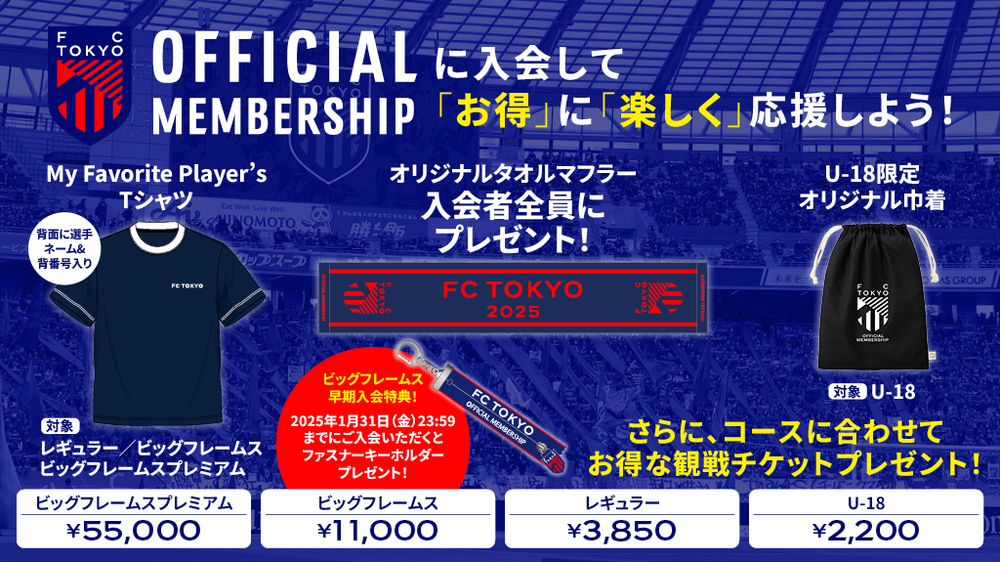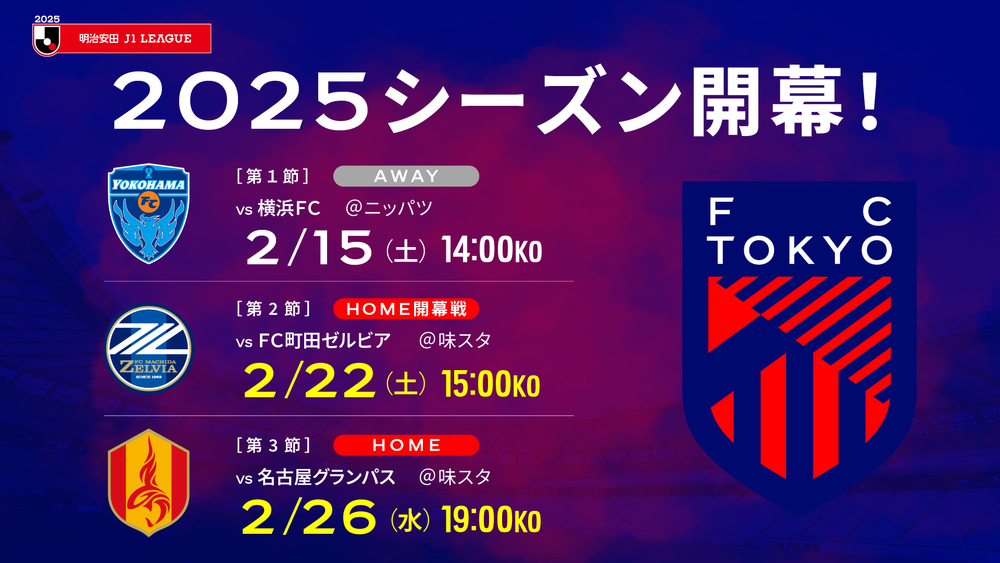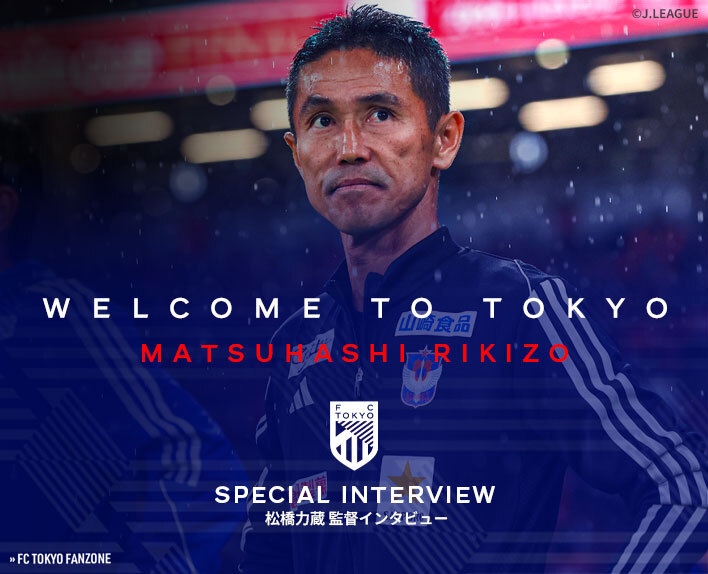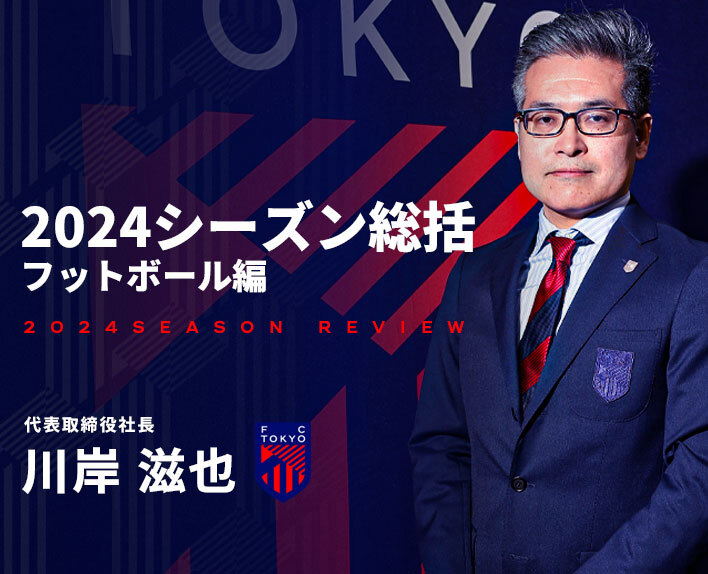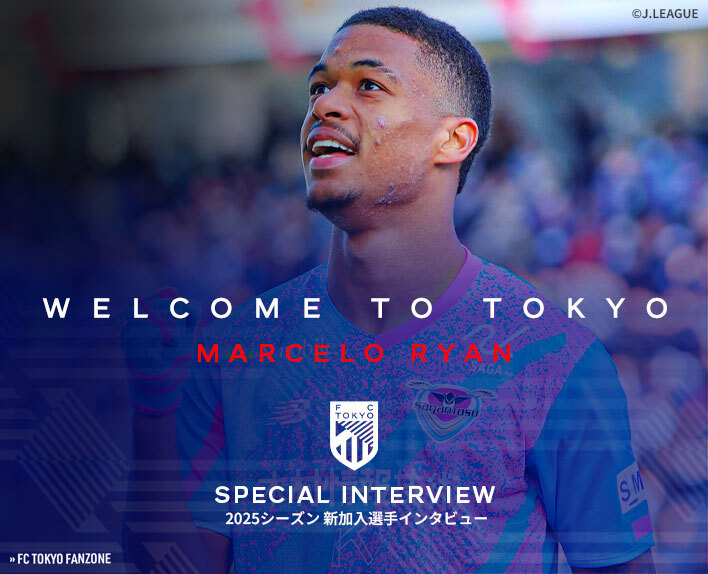Win with good soccer. Backward calculation from victory and goals
The 2025 season is finally starting. Tokyo will fight alongside the new head coach Rikizo MATSUHASHI in this new season. This first interview covers a wide range of topics, from the circumstances of his appointment to his experiences as a player, his pride as a coach, his personality, his approach to players, and the soccer style he aims for with the team. He passionately spoke about his dedication to soccer and his philosophy. Born in Chofu City, which can be said to be the home of Ajinomoto Stadium, the new coach is natural and full of humanity. With the new team's launch just around the corner, the vision for “Rikizo Tokyo” is beginning to take shape with various keywords.
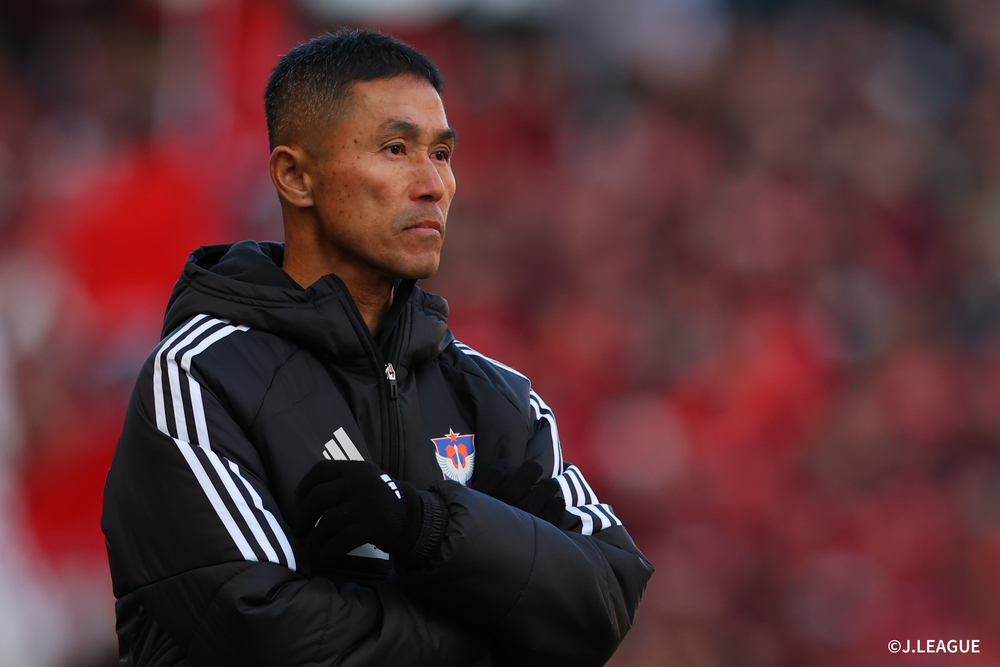
Born in Chofu
──First of all, congratulations on your appointment as manager. What were your thoughts when making this decision?
I am truly grateful for this opportunity, and I felt a sense of disbelief. My career as a coach is not particularly long, and while I have achieved promotion to J1 League, it was not just my effort but also the strength of everyone I worked with. Therefore, regarding the evaluation from those around me, when I compare it to my own expectations and the pace of growth in my coaching career, I felt a bit of an imbalance. Nevertheless, I am very happy to have received this recognition and to have been approached at an early stage.
By the way, Coach Matsuhashi was born in Chofu City, where Ajinomoto Stadium is located.
It is often asked, but my place of birth is Kokuoryo, Chofu City, and I grew up in Chiba Prefecture.
──That said, returning as a coach to the place where it all began. It feels like the beginning of a wonderful story.
That's right. I also feel that this is a kind of "fate." When I was appointed as the coach in Tokyo, my mother contacted me and said, "It's fate, isn't it?" It's interesting, isn't it? I wonder if there's something to it, and I truly want to make it something meaningful.
──What would you like the fans and supporters, who walk alongside a locally born coach, to call you?
There isn't a specific one, but I often get called "Riki-san." What I thought was clever from the players was "Power Kura-san." Only "power" was in English (laughs). Teruhito NAKAGAWA, who I worked with at Yokohama F.Marinos, further shortened it to "Power-san." They really think about these things (laughs).
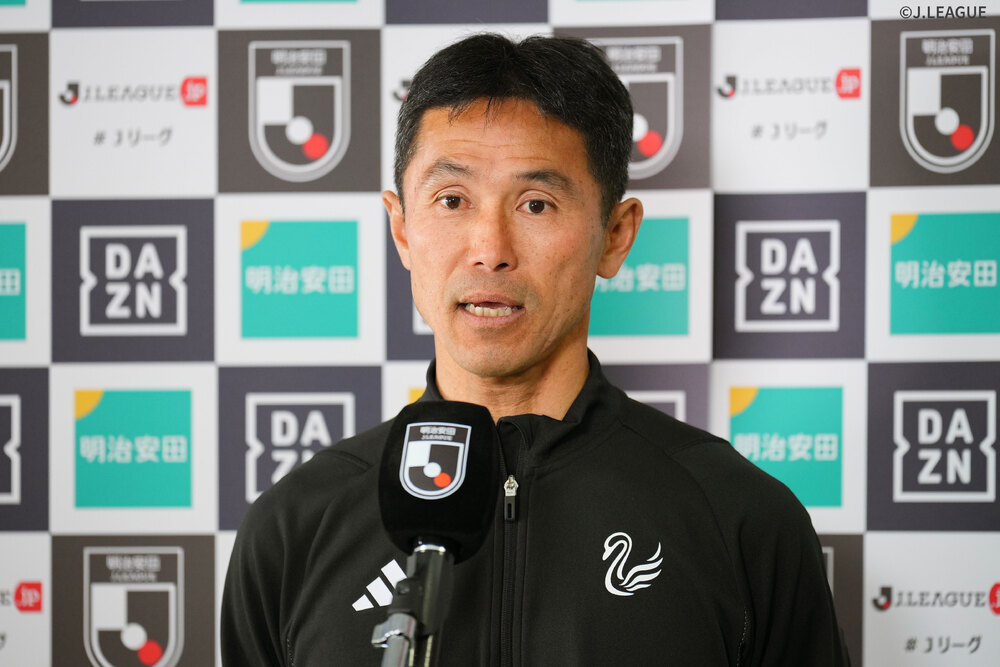
Value Communication
──Looking back briefly at Coach Matsuhashi's career, he played for Nissan Motor, Yokohama Marinos (at the time), Kyoto Purple Sanga (at the time), and Jatco, and then pursued a path as a coach.
It has been significant to interact with many wonderful players and coaches. Although it has been gradual, various clubs have given me opportunities to grow. I am still far from complete, but I have been able to shape myself while viewing football from various angles. Among them, my experience during my time with the Yokohama FM academy staff has been particularly impactful. The interactions with coaches and peers have truly been fruitful. We have discussed in detail, day and night, themes such as how to sincerely face football and how to help players progress to the next stage. This also includes conversations and collaborations with staff from various clubs, not just coaches. I believe that such experiences have laid the foundation for me. Of course, there were also clashes along the way. Including those experiences, it felt like a place where I was molded amidst the waves.
──As a character, he is said to be "serious and passionate." During the season when Albirex Niigata achieved promotion to J1 League, it was impressive that all the players seriously claimed, "The MVP is Muriqui." I believe this is the best proof that the coach's passion became the foundation of the team.
Passion is necessary, but I also believe it is not a methodology. My thoughts and words are truly what I think, just as they are. How one behaves as a person is important in moving things forward, but if that is treated as just a "decoration," it becomes a lie. I am myself, and I am not creating to show that part; I simply say what I do not understand. I will ask about things I want to learn. It is natural that I am not perfect in everything, and it is obvious to seek guidance from the leaders and peers around me for what I lack. I also learn from the players. It is important to communicate properly, but it is not about having a special style; I just want to face the players sincerely.
──The "words" that express that feeling are very impressive. During his time in Niigata, he shared many resonant phrases such as "the strongest enemy is the one in front of you" and "the philosophy doesn't change, but the methods do." The most striking was "detach with technique." When the opponent came at us with high pressing, instead of escaping, it felt like a positive and strong policy was shown to confront them with our strengths and win. His commitment to words is quite strong, isn't it?
I believe that there are words that resonate in my heart, stimulated by various things including reading. I used to jot down good words, but recently I have not been actively doing that. I started to think, "Isn't that a bit superficial?" I believe that the words that truly resonate in my heart are those that come out of my mouth when they have a significant impact on me and match the scenery in front of me. I think important words should be set aside until they settle in my heart, and they will naturally come out when needed.
──Serious and passionate. On the other hand, he is also lightly teased by the players; for example, he is called "Rikizo MATSUHASHI, handsome!" by both the players and the supporters, showing a lovable character side as well.
It's really appreciated, isn't it? There are thoughts about whether being too serious is a good thing, and it's not like we have to be 'dead serious' all the time; it's okay to be appropriate where it matters. I always think that things will turn out as they will, and I've even told the players, 'I don't know, so I'm counting on you guys' (laughs). If everything is too rigid, I wonder if we can really rely on it. A little unconventional idea might not come out if we are too serious, so it's good to relax a bit. I understand both the good and bad sides of my emotions, so when I feel emotional ups and downs, I consciously try to 'stay neutral in any situation' and 'keep my center of gravity in the middle.'
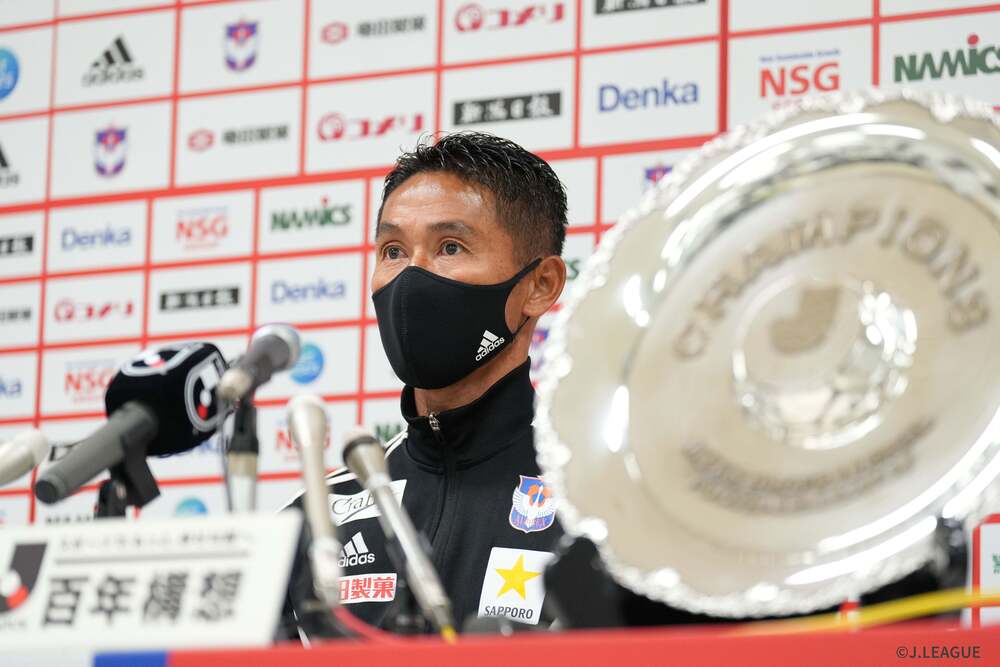
I've grown tired of hearing about 'good soccer'
──How have you viewed the team and club in Tokyo so far?
I have seen that we are steadily growing into a big club. Tokyo is the capital of Japan, and it is truly a large city known by everyone in the world. I believe the club is also moving towards becoming one of those "big places."
──What kind of persuasive words were used when you were appointed as the coach?
It was the first team that approached me with a pitch, and they explained to me why it was me, including the club's vision.
──What were those visions and projects like?
As a club, regarding how to establish our style of football, I have been entrusted with an important role amid the gradually changing trends. First, I am considering how to incorporate what I have into the current strengths of the team, and I believe there are aspects that align with what I have in mind. In Niigata, we carefully built up play, and the phrase "number one in ball possession" was often used as a synonym, but that was not our goal. The Niigata players understood this well. So, I told the players, "I'm glad that our football is highly regarded, but I'm tired of hearing that." What we aim for is not "good football," but "winning with good football." Therefore, naturally, we must work backward from victory and goals. Tokyo has fast players up front, and not only in counterattacks, but fast attacks are attractive. We can attack without many touches, and there are players who can break through individually. It's just a matter of how to make the most of those characteristics.
──How was that way of thinking cultivated?
I believe this idea is most influenced by my career as a player during the Nissan.S era. Rather than playing aimlessly, I was asked by my seniors for a bit of playfulness and technical skills, and I was trained from various angles. That's why I think the phrase 'detach with technique' came about. There is a commitment to that. Under pressure from the opponent, instead of just casually pulling the ball back, the accumulation of trying to lure the opponent out and bending the arrow creates many goals and chances. If that happens, holding the ball becomes a prerequisite, and it's also important to attack quickly, which means figuring out how to defend is crucial as well. First, I want to work together with the players to determine what is best or better. I try not to become overly theoretical and avoid having preconceived notions.
──Indeed, "technique" seems to be a major keyword. The episode requested by the superstar Kazushi KIMURA from the Nissan era is well known.
This is truly ingrained, isn't it? Mr. Kazushi says, "Soccer is always about pursuit!" Since he says it, there's no doubt about it. Back then, everyone at Nissan was like that. When my pass was a judgment error, instead of hearing, "That's not it," I would hear, "Oh, I see, that makes sense." This feels like being laughed at for a complete lack of skill, and it pierces the heart. However, if you can't keep up with that level, you won't get to play in the matches. Therefore, we must strive for skill. I believe that is a very important point.
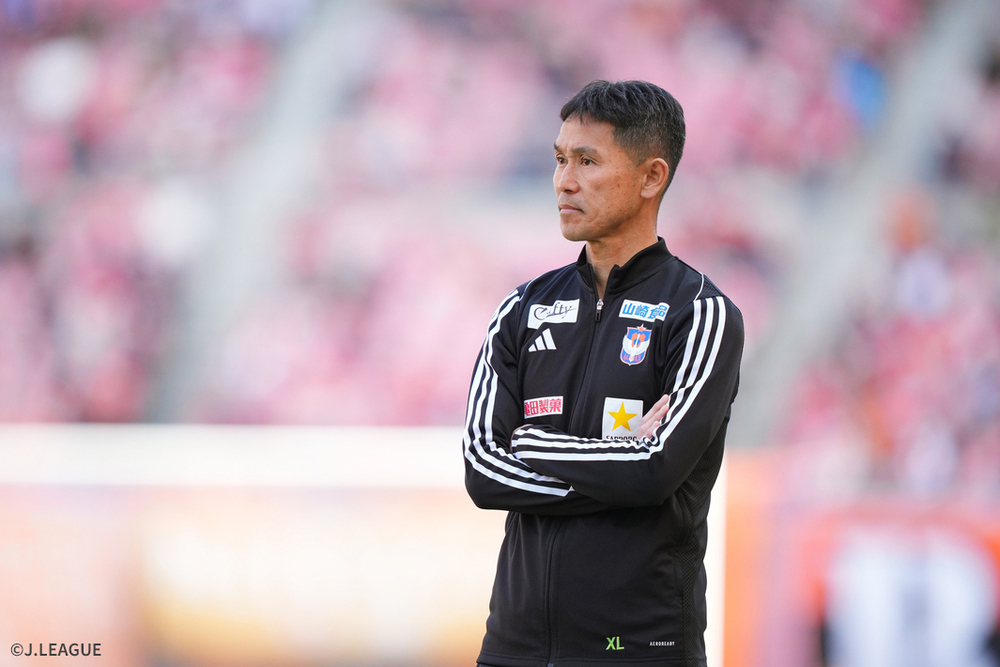
──What perspective should fans and supporters take to understand and enjoy Coach Matsuhashi's soccer?
We will definitely focus on the technical aspects. Moreover, I always want the players to play with vitality and fully demonstrate their abilities. Rather than rigidly fitting into a specific form, I want to make decisions while progressing with team building.
──As mentioned earlier, Nakagawa has been mentioned, and there are players in Tokyo with whom we have worked together so far.
Nakagawa and Keita ENDO experienced the league championship together at Yokohama F.Marinos. I have been watching ENDO since his academy days, and Kei KOIZUMI was part of the primary (elementary school) and junior youth teams at Yokohama F.Marinos. Although I haven't directly coached him, I have always observed him. Recently, Takahiro KO was together with us in Niigata.
Isn't it a joy as a leader to once again join forces with them due to fate?
It's true. A lot of time has passed, but I think it's very meaningful to meet again here, whether you call it fate or a reunion. I am very happy about this and want to make it something meaningful.
──I heard you visited the MIXI, Inc. office in Shibuya for a meeting with the club. I believe you could see all of Tokyo from the high floors.
It was a wonderful view, and I immediately started taking photos in silence as soon as I entered the room. I'm not usually the type to take photos, but it was truly amazing.
──That huge city will be the hometown of the team led by Coach Matsuhashi. Perhaps you have felt something new about "Tokyo" once again.
I thought I had come to a tough club (laughs). Of course, that’s a joke, but looking around, I felt the greatness of the city of Tokyo, and it’s a place with a lot of power. It made me feel a renewed sense of determination.
In the announcement of his appointment, he expressed his determination by saying, "I want the stadium to be enveloped in a whirlwind of excitement." Together with the stadium, we expect Coach Matsuhashi to bring a style of football that excites the entire city of Tokyo.
That is what this club aims for, and I truly want to involve many people. The potential is immense, and I want to carry that heavy responsibility and move forward towards a great goal together with the fans and supporters.
